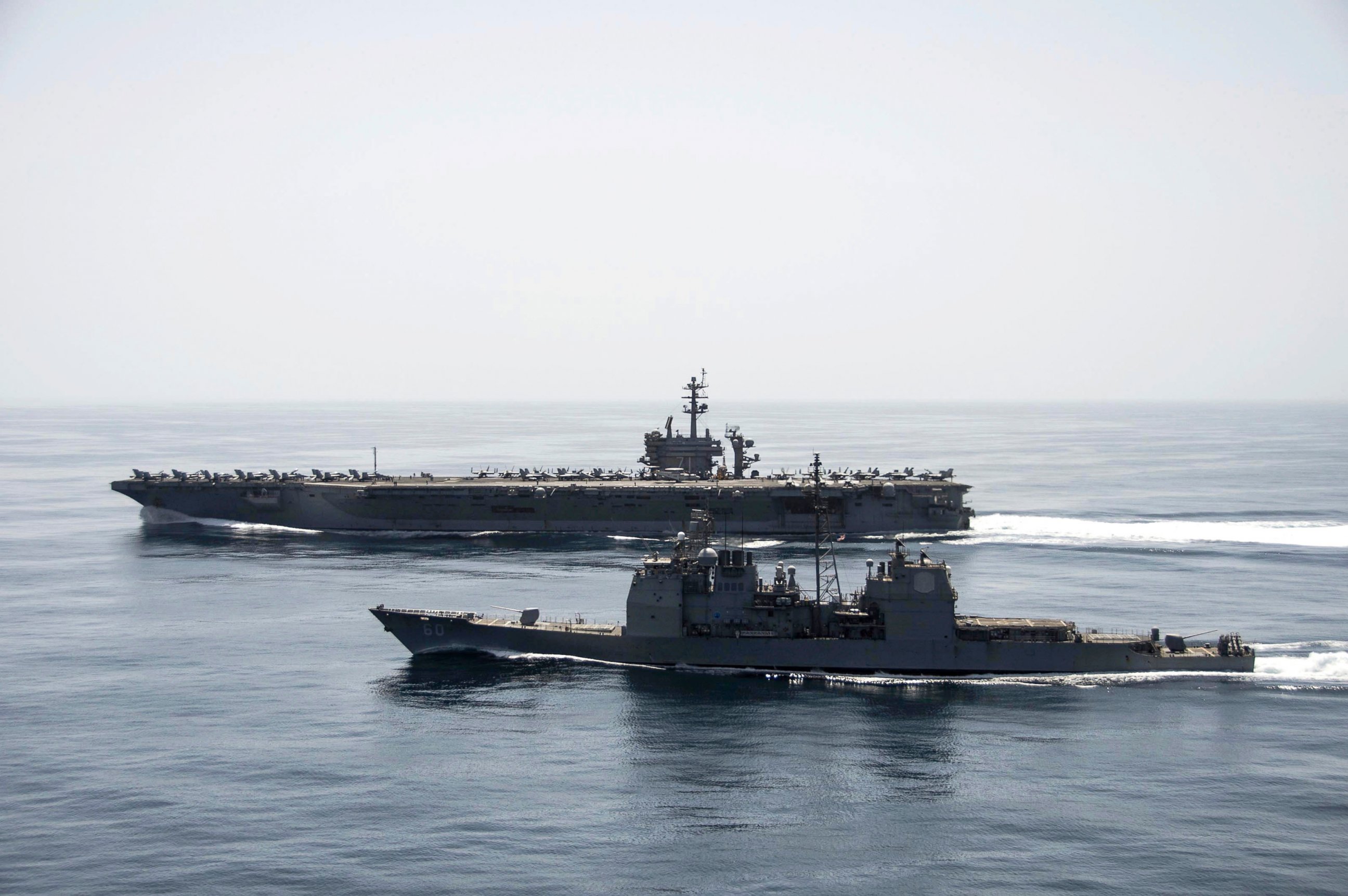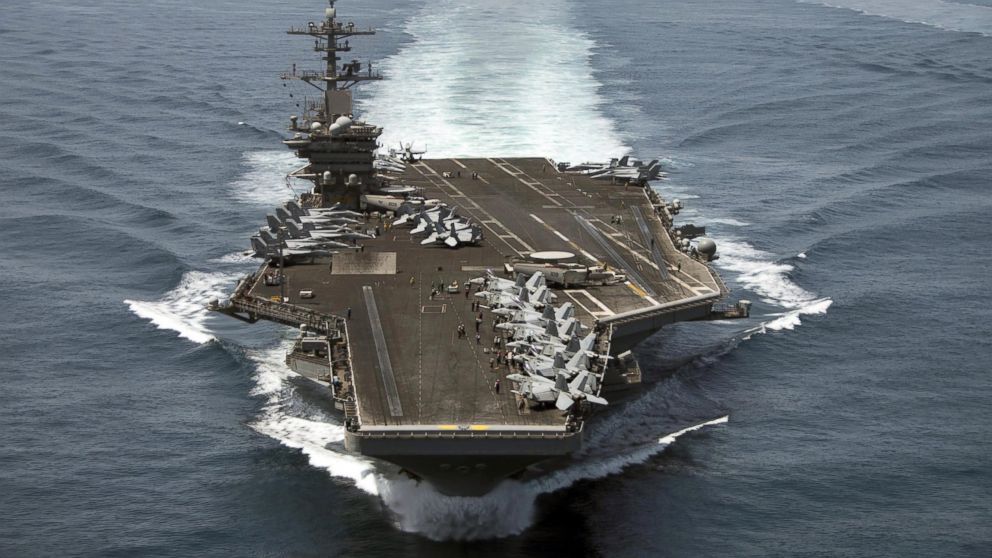US Navy Ships Likely Will Not Board Iranian Ships Headed to Yemen
— -- U.S. officials are downplaying the idea that U.S. Navy ships will intercept or board a convoy of nine Iranian ships suspected of carrying weapons to Houthi rebels in Yemen.
Officials say the carrier USS Theodore Roosevelt was moved closer to Yemen because of the deteriorating security situation in that country and to ensure that shipping lanes remain open.
“The USS Roosevelt along with (the cruiser) USS Normandy are operating in the Arabian Sea and the Gulf of Aden with the very clear mission to ensure that shipping lanes remain open to ensure there is freedom of navigation through those critical waterways and to help ensure maritime security,” said Col. Steve Warren, a Pentagon spokesman.
He criticized what he called “overcranked reporting” that the carrier and eight other Navy ships near Yemen could be preparing to intercept and board the convoy of nine Iranian ships, mostly freighters, believed to be headed to Yemen.
“Let’s be clear,” said Warren. “They have moved to that area in response to the deteriorating security situation in Yemen.”
Marie Harf, a State Department spokeswoman, said “I think there was a lot of misreporting. I saw a lot of cable tickers today, ‘Ships Going there to Intercept Iranian ships,’ that is blatantly untrue. So this discrete movement of US assets is for a discrete purpose. Are there all of these other ways we have of making clear to the Iranians what they should and shouldn’t do? Absolutely. So let’s just not get all spun up about something that’s not accurate.”

Saudi Arabia and a coalition of Arab nations have conducted airstrikes in Yemen against the Houthis to force an end to their military campaign and restore the government of President Hadi.
The U.S. official said it is more likely that the ships could instead be boarded by the Saudis or other coalition partners if they do in fact proceed toward a Yemeni port. Saudi Arabian and Egyptian ships have been patrolling the waters off of Yemen to enforce a UN Security Resolution that prevents the re-arming of the Iranian-backed rebels.
The official said the Iranian convoy remains in international waters 150 miles east of the Yemen-Oman border headed in a westward direction.
“We are continuing to watch this Iranian convoy,” said Warren. “They’ve not declared their intentions or what they are going to do.”
The official said if the Iranian ships do end up heading towards a Yemeni port they could potentially be boarded by the Saudis or other members of their coalition. And if they do make it into a Yemeni port they could also become a target in port for having broken the arms embargo.
Currently the Navy has nine warships dedicated to the Yemeni situation operating in various areas of the Gulf of Aden and the Arabian Sea.
The aircraft carrier Roosevelt and the USS Normandy are operating in the northern Arabian Sea while another group of ships including the amphibious assault ship USS Iwo Jima is operating further south in the waters east of the Yemen-Oman border.
A third group of vessels are operating near the Bab el Mandeb Strait between the Red Sea and the Gulf of Aden.
According to a spokesman for the Navy’s Fifth Fleet, these ships are moving back and forth across the strait several times a day exercising their right of passage. In doing so they’re acting as a deterrent to any force who might seek to disrupt shipping.




